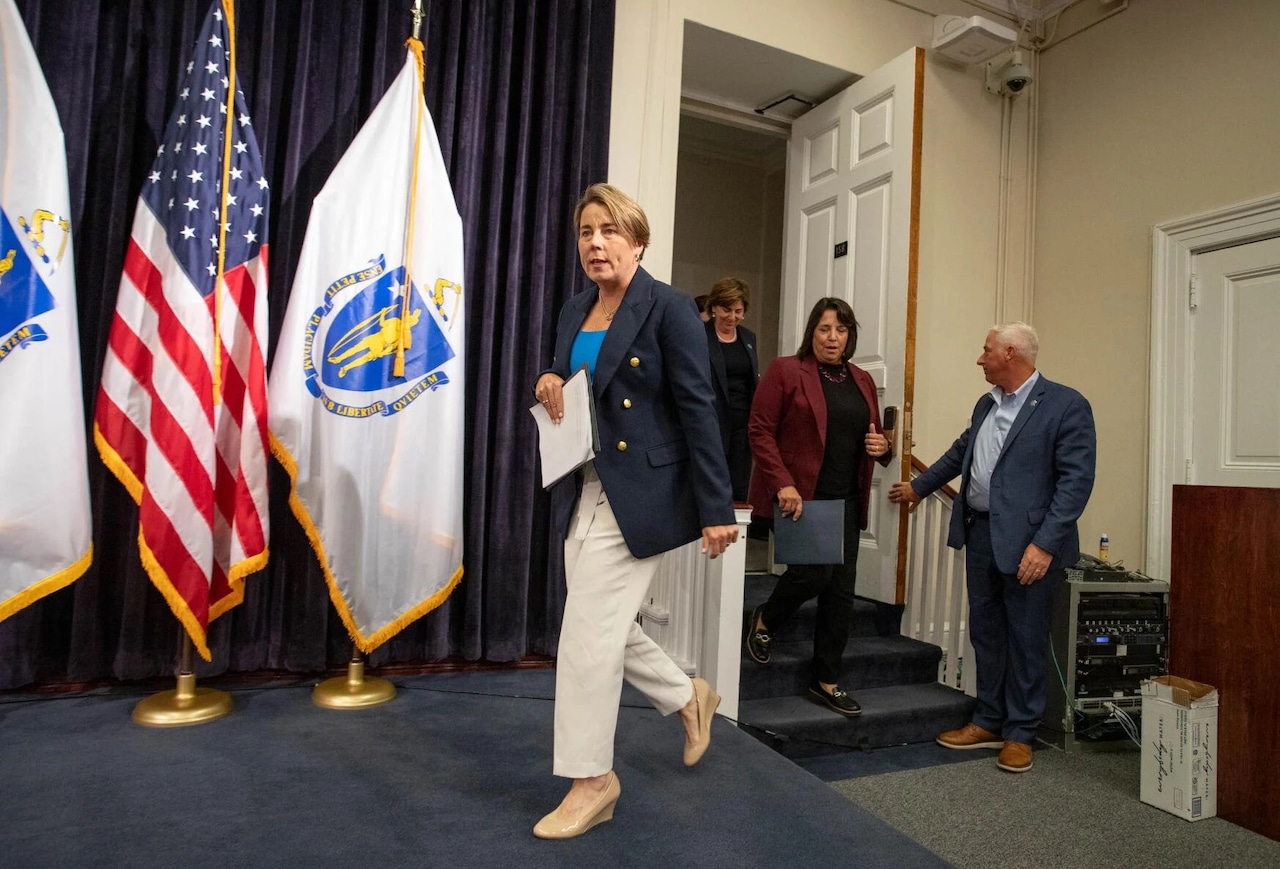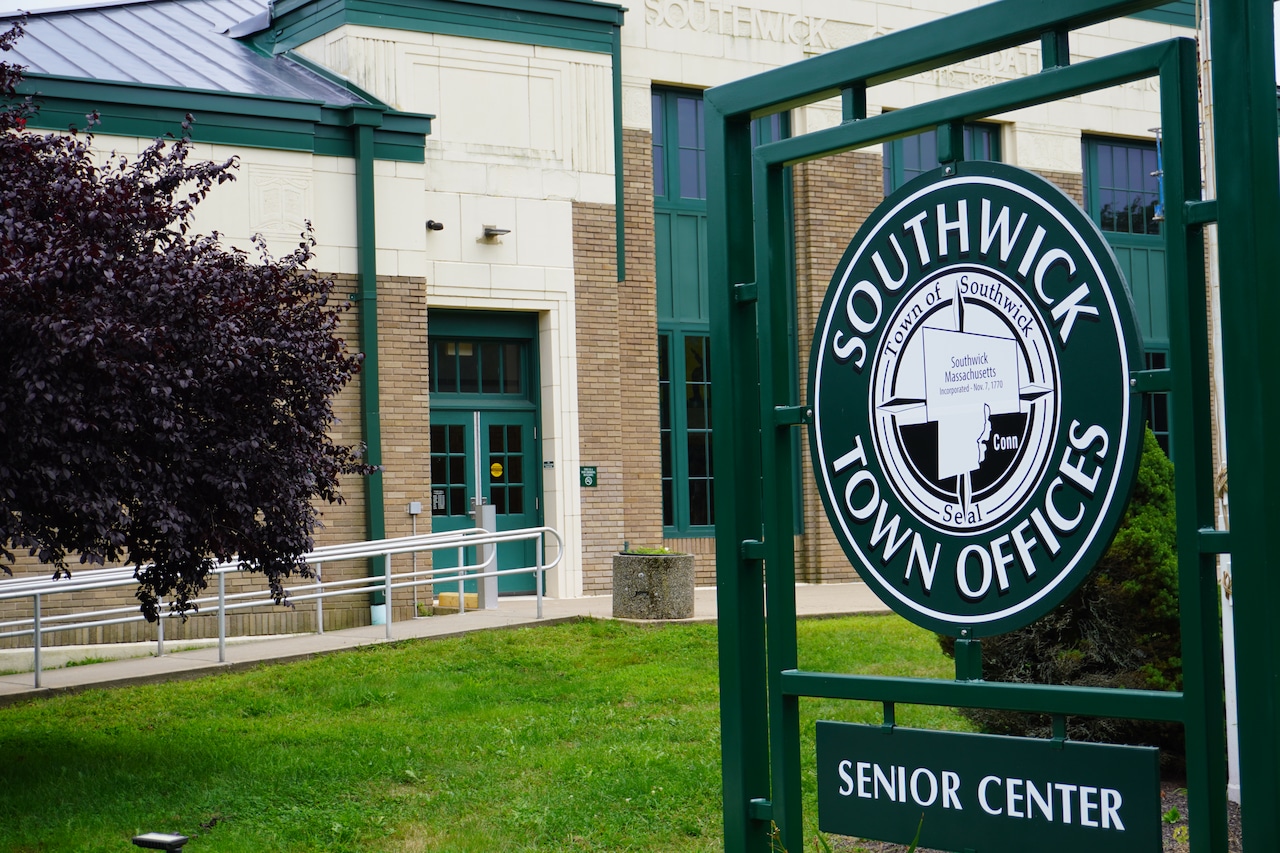
If you ever thought that a culture war battle couldn’t erupt in deep blue Massachusetts, think again.
A looming fight over a new gun law also may lay bare some of the misconceptions about the way some Massachusetts residents think about themselves — and each other.
First, the background:
Democratic Gov. Maura Healey won plaudits and brickbats alike this week when it was revealed she intended to flex her executive power to head off a petition drive, helmed by a Cape Cod gun store owner, aimed at suspending a series of fixes to the state’s gun laws.
Second Amendment advocates called Healey’s decision to use her emergency powers to usher the changes onto the books before they were to officially take effect later this month “pure tyranny at its finest.”
Speaking to reporters in Somerville on Tuesday, Healey argued that it was the right move at the right time.
“It’s a law that was passed, that came to my desk, that I signed,” she said. “I think it’s important to implement. It’s a law that I think most people get and support.”
The bill, the product of complex negotiations between the majority-Democrat House and Senate strengthens the state’s existing assault weapons ban; expands its “red flag” law language, and cracks down on ghost guns — among other changes.
Healey, who signed the bill into law in July, argued Tuesday that “just as a matter of law enforcement … it’s just important for the safety of our residents that we get this law on the books and … implement it.”
Now the argument:
But according to one veteran observer, the debate over the law — and the emphatic pushback from gun owners and their supporters — is a reminder that while the Bay State may be mainly liberal, it’s not necessarily monolithic.
And that could come as a surprise to those who rarely venture beyond the Interstate 495 corridor.
“Our reputation culturally and politically isn’t really our reality,” Jerold Duquette, a political science professor at Central Connecticut State University who specializes in Massachusetts politics, said. “The average Massachusetts resident is more like the average American than everyone else in America would assume.”
And that’s true when it comes to guns, he said.
“The gun culture in rural Massachusetts is not measurably different from rural Pennsylvania,” where there is a vigorous and vivid hunting and gun culture, he said.
Through July, there were 568,251 active firearms licenses statewide, according to a MassLive analysis of data compiled by the Massachusetts Firearms Record Bureau.
That’s a fraction of the state’s population of 7 million. But it’s still a larger number than some may think of in a state with some of the strictest gun laws in the country.
“The liberal notion of gun control does define our politics,” Duquette told MassLive. “We have a lot of folks in Massachusetts who are conservative on any number of issues … they’re not that numerous. But we’re not just a bunch of lefties who hate guns.”
Gun ownership has grown in unexpected places, including among Boston’s Black residents, who pressed the case earlier this year for easier access to weapons, arguing they need them for self-defense.
“It’s a legal right they are asking for and I need to open my eyes to the fact that folks in my community feel their Second Amendment rights are being infringed upon,” state Rep. Russell Holmes, D-6th Suffolk, whose district includes Dorchester and Mattapan, told The Dorchester Reporter in April.
The politics of it all
Central Massachusetts voters similarly received a reminder of the centrality of the issue last year when then-state Rep. Peter Durant, a Republican, won a special election for a Worcester-based state Senate seat.
Durant used the then-simmering debate over gun reform as a tool to paint his opponent, fellow Rep. Jonathan Zlotnik, as part of a Democratic super-majority on Beacon Hill that was out of step with the district on the issue.
Unlike other Democrats who had voted against an earlier version of the bill, Zlotnik, a “yes” vote, didn’t have the luxury of offending the progressive voters he needed to show up at the polls in the low-turnout contest, Duquette wrote in an analysis for the New England Journal of Political Science.
That gave Durant, who’s now part of an enthusiastic but tiny, 4-lawmaker-strong caucus in the 40-member upper chamber, the opening he needed.
He went on to defeat Zlotnik by 11,985 votes to 9,813, MassLive reported at the time.
It may have been a win, but it also was “a clear example of the dilemma that conservatives have” in statewide politics, Duquette said
Namely, that kind of stuff flies in primaries and low-turnout special elections. But “they are not the kind of views that draw enough people to the polls on Election Day with those gripes in mind,” he explained.
What’s next?
This brings us back to the petition drive mounted by Cape Cod gun shop owner Toby Leary and other pro-gun rights forces.
Earlier this month, Leary and his allies announced that they were about halfway to getting the signatures they needed to suspend enforcement of the law and getting a question on the 2026 ballot, The Boston Herald reported.
They have argued that some of the language in the law, including restrictions on long guns, could put some shops out of business.
“It’s like telling Subaru they can no longer sell a Subaru Forester, the best-selling vehicle in their lineup. That’s basically what the state is doing to these businesses: they’re saying you can no longer sell one of the largest and most profitable segments of your business,” Leary, a co-owner of Cape Gun Works in Hyannis, and chair of the repeal coalition, told State House News Service.
While Healey’s action Wednesday headed off the petition drive, it didn’t end it, Duquette observed. Leary and his allies still can pursue a statewide ballot question in two years.
“It’s an interesting strategy by the governor,” Duquette observed. “It’s probably not a harmful strategy to the petitioners, because they will get their day at the ballot box if they can muster the support to do so.”
While it’s a giant “If” it might not be an insurmountable one.
MassLive Reporter Tréa Lavery contributed to this story.





